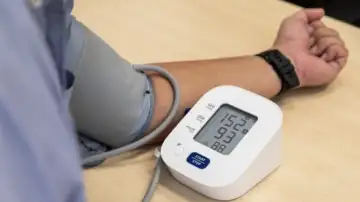Renal hypertension is the condition when kidney diseases result in elevated blood pressure. In an interview with HT Lifestyle, Dr. Bhanu Mishra, consultant nephrologist, BLK Max Hospital, New Delhi said, “It’s a serious condition that can lead to heart disease and further kidney damage.
Early treatment is essential to prevent complications.” World Hypertension Day 2025: Doctor shares 7 lifestyle tips to manage high blood pressure
Dr Bhanu Mishra further suggested a few strategies to control renal hypertension:
1. Nutritious diet options
Improved food choices are one of the first steps in the management of renal hypertension. A low-sodium diet is especially critical as too much salt elevates blood pressure. Reducing salt intake makes kidneys function more effectively and lowers blood pressure. Eating foods rich in potassium, like bananas, and avoiding processed foods also helps to improve blood pressure.
2. Regular exercise
Regular physical exercise is necessary for blood pressure control. Exercise is good for the heart and lowers blood pressure. A goal of at least 30 minutes of moderate exercise, such as walking, jogging, or swimming, most weekdays is a simple and effective strategy. If finding it difficult to start an exercise program, starting slowly and gradually increasing the effort is helpful.
 3. Medication
3. Medication
In some cases, lifestyle modifications will not be enough, and medication will be necessary. Doctors can provide a variety of medications that include:
ACE inhibitors or ARBs: These help to relax blood vessels so that the heart has an easier time pumping the blood and lowering blood pressure.
Diuretics: Better known as water pills, these help the body rid itself of excess fluid and lower blood pressure.
Calcium channel blockers: They soften the blood vessels and are also effective in managing hypertension in patients with kidney disease.
4. Weight control
Maintenance of healthy weight is yet another vital area in the management of renal hypertension. Overweighting can enhance the workload of the heart and kidneys, and it could become harder to manage blood pressure. Minor weight loss can help ensure improved blood pressure and overall well-being.
5. Regular monitoring
It is important that patients with renal hypertension monitor their kidney function and blood pressure regularly. Frequent measurements of blood pressure, either within a clinical or home environment, are recommended. Kidney function tests also detect any further damage or complications at an early stage so that proper adjustments are made to treatment.
